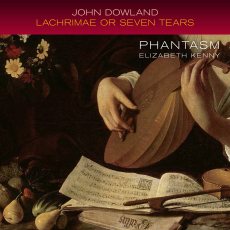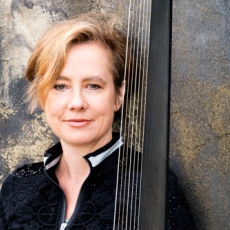Phantasm - Dowland: Lachrimae - Early Music Review
Performance - 5 stars
Recorded sound - 5 stars
Booklet note - 5 stars
Overall presentation - 5 stars
When in his programme note Phantasm's director Laurence Dreyfus describes Dowland's Lachrimae as ‘the most sensuously tuneful hour of music ever written' this is no small claim, but at the same time it is hard to contradict. The organic (in another age you could say symphonic) development of motifs, the constant attention to melodic beauty, the stomach-churning harmonic volte faces make the complete publication a masterpiece, a fact of which its composer, who afterwards signed himself as ‘Jo:dolandi de Lachrimae', was clearly aware. This fine new recording by Phantasm speaks of extensive experience with this repertoire, while the vital contribution of lutenist Elizabeth Kenny is also wonderfully idiomatic. The first work ever published for notated lute and viols, Lachrimae was the father to a whole clutch of worthy offspring. The classic recording of this music is the 1985 account for BIS by The Dowland Consort directed by legendary lutenist Jakob Lindberg, and some direct comparisons are instructive. The earlier recording adopts more measured tempi, particularly in the pavans, taking some eight minutes longer over the complete recording. The Phantasm account is more flexible, with rushes of passion.
The new recording benefits from Linn's superlative modern recording quality, although the BIS recording is both more ‘toppy' and ‘bottomy', emphasizing the fundamental and occasionally shocking harmonic shifts. Lastly both recordings wisely resist the temptation to enhance the lute sound, allowing it to blend beautifully with the viol textures - I would say that Lindberg's tone is marginally more prominent than Kenny's, although given BIS's pledge to reflect natural sound balance in their recordings we must assume he simply played louder. In the more animated movements later in the publication, there is definitely more definition in the Linn recording, as well as bolder and more daring playing from viols and lute. Rather randomly, Phantasm almost run some tracks together including the seven Lachrimae pavans, but also some of the later movements - it may be that I am too used to The Dowland Consort's spacious account, but I found myself in need of an intellectual break occasionally. There is no doubt that this new Phantasm recording is a valuable addition to our understanding of this remarkable publication, and Dreyfus and Kenny's excellent programme notes give us further valuable players' insights into this extraordinary music.


